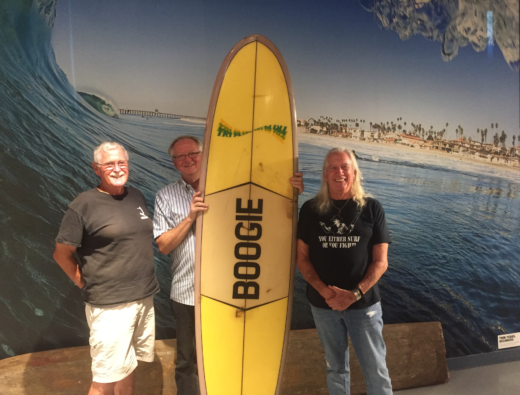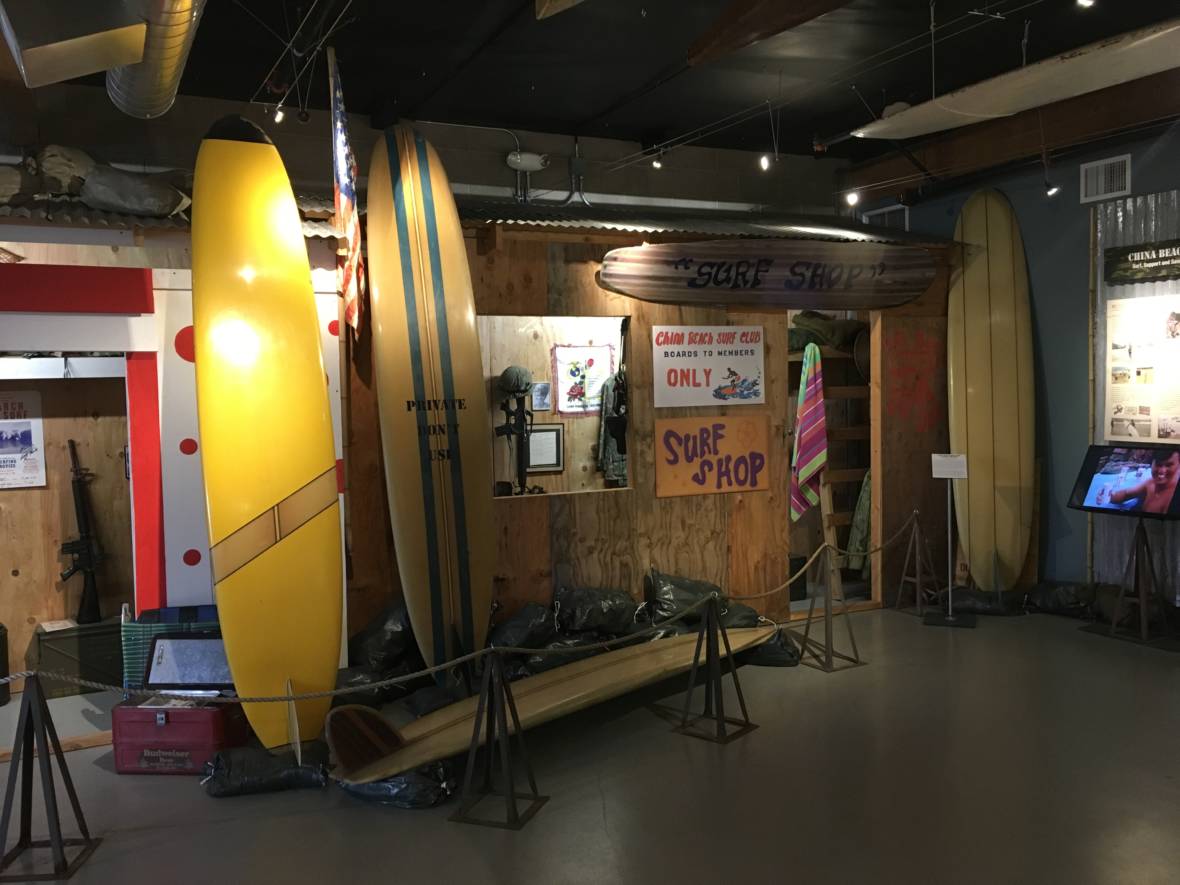“It was a cool kind of thing,” says White, who served in the Army from 1969 to 1972. “The girls kind of dug it." Eichstedt and Matthews chuckle in the background.
“Surfing was my cornerstone of my life before I left for Vietnam,” says Matthews, who was drafted in 1969. “I thought about it in Vietnam.” He remembers getting to surf only once along the coast of Vietnam during R&R.
Eichstedt served in the Navy and was mostly on the water. But he says he brought his Hobie board with him when he went on land in search of waves along the coastline in Vietnam.
The men said they never heard of other troops surfing during the war. They thought they were alone. Matthew says surfing was something he kept to himself, because there were other more serious things to worry about, like trying to stay alive.
Other Veterans Share Surfing Memories
The exhibit was compiled over two years, and during that time many other vets began to contribute stories of their experiences, says museum historian Jane Schmauss. They, too, were unaware so many others were surfing in Vietnam during the war.
More than 60 veterans were interviewed for the exhibit.
Returning Vietnam veterans came home to a country torn apart over the war. Many veterans were treated horribly, sometimes they were even physically assaulted. So they often kept quiet about their time overseas and were unable to address their post-traumatic stress disorders from combat.
“There are things in Vietnam that I will never forget,” says White. "There’s certainly nothing to brag about.”
In some ways, this exhibit, along with surfing, has helped to heal emotional and physical wounds.
While the three men never crossed paths on the beaches of Southern California or in Vietnam, they all hit the water as soon as they returned home to California.
“Nothing else matters. You are just sitting there with the wave,” says White. “Just enjoying it.”
Matthews says he hopped into his VW bus and drove to the beach when he arrived home in 1971. “Being in the ocean is therapeutic: the solitude, the flow of the waves,” he adds. “It’s a lot like going to therapy.”

